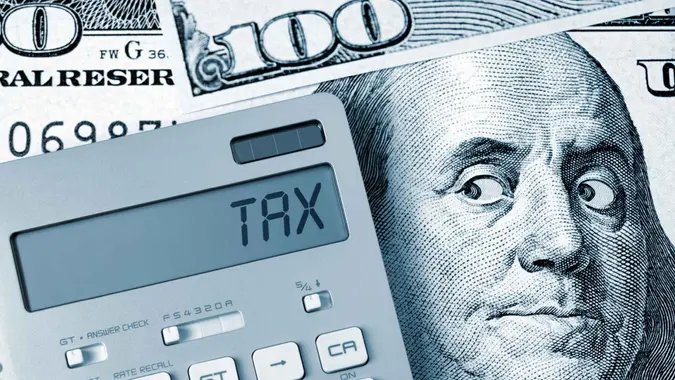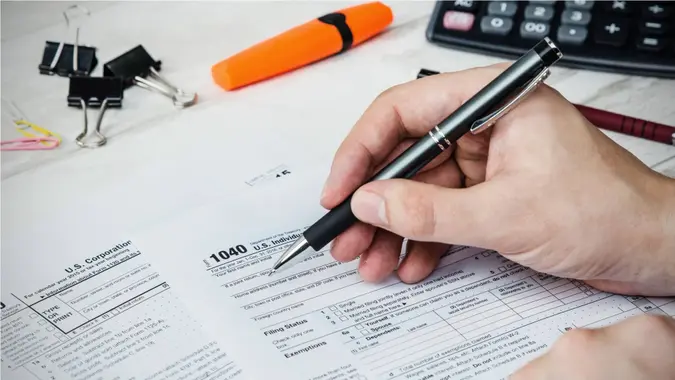How Long Should You Keep Your Tax Returns?

Commitment to Our Readers
GOBankingRates' editorial team is committed to bringing you unbiased reviews and information. We use data-driven methodologies to evaluate financial products and services - our reviews and ratings are not influenced by advertisers. You can read more about our editorial guidelines and our products and services review methodology.

20 Years
Helping You Live Richer

Reviewed
by Experts

Trusted by
Millions of Readers
Take it from someone who has a hoard of legal accordion files stashed away in a hope chest: It’s a good idea to keep your tax records. However, if you’re going through a phase of trying to get rid of everything, the IRS is (sort of) clear on how many years to keep the paper trail.
Here’s the best advice for what to do with all those faded receipts.
How Long To Keep Your Tax Records
Let’s go in descending order:
- Forever: If you never filed a return, or if you filed a fraudulent return (neither of which is recommended)
- 7 years: If you file a claim for a loss from worthless securities or bad debt deduction
- 6 years: If you do not report income that you should report, and it is more than 25% of the gross income shown on your return
- 4 years: For all employment tax records (W-2, 1099, etc.)
- 3 years: If none of the above situations apply, or if you got a credit or refund when you filed
That’s a lot to think about, though.
If you’re like most people, you should plan to “save all your receipts for four years, and save a copy of your tax return for seven years,” said Rus Garofalo, founder of Brass Taxes.
In short, the IRS has three years from the date you filed to come say, “Show me all your receipts!”
In the case of employment records, Garofalo said, “You might as well save your W-2s and 1099s, but realistically, the IRS has a digital copy of all of that, so the expenses are what to focus on keeping.”
It’s also worth looking up what your state’s statute of limitations is. Many match the IRS’ three years, but others (including Arizona, California, Colorado, Kentucky, Michigan and Ohio) are four years, so Garofalo’s four-year rule should keep you covered at the state level, too.
The Best Way To Store Tax Documents
You may have read that you must keep tax records in a fire-proof, flood-proof safe. Or that you should scan every shred of paper and keep it in a password-protected, encrypted cloud storage folder or hard drive.
If that’s your personality, Garofalo said, that’s fine, but you don’t have to go overboard.
“I have mine in a file folder,” he said.
In his view, you can put your tax backup file in a place you don’t go often, making sure you can locate it on the literal 1% chance you will need it. Then, once four years pass, you can empty the folder.
“The IRS has procedures if anything burns up in a fire. They don’t get to be punitive and say you don’t get any deductions because your house burned down,” he said.
Cost-Benefit Analysis of Being Organized
Should you be worried about an audit?
“The sloppier your records are, the more of a pain it will be if you have to show your numbers,” Garofalo said.
But realistically, you can do a little cost-benefit analysis here. Spending hours and hours getting pristine receipts audit-ready every year might not be worth it. If you do get audited, Garofalo said it’s going to be an annoying task no matter what. Sloppy records might mean it’s a 30-hour task instead of a six-hour one, but that might be a risk you’re willing to take.
He said the IRS is “allowed to assign you a research paper, and you either have to do it or pay. But the likelihood of it happening in any given year is pretty low, so how much time are you going to spend preparing for it?”
 Written by
Written by  Edited by
Edited by 

























